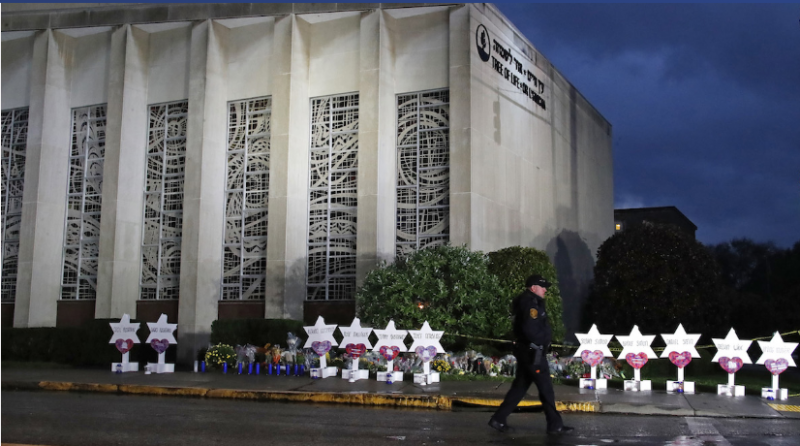Gab Goes Under after Companies Cut Web Access
Gab, a social media platform that allowed hatemongers free reign, went dark after Gab user Robert Bowers shot and killed 11 Jewish worshippers at a synagogue in Pittsburgh and wounded six others. Twitter removed the account used by a man who sent 14 bombs to Democratic leaders, liberal celebrities and CNN. According to a story in The New York Times today, on Monday Instagram had a deluge of anti-Semitic posts after the shootings, totaling 11,696, making it another forum for hate.
Companies that enable usage and access to online platforms, including Paypal, Stripe, Joyent, GoDaddy and app stores, removed their support of Gab, making it impossible for the web company to continue to stay in business.
Andrew Torba, the CEO and founder, defended his company, telling NPR in an interview:
“The answer to bad speech, or hate speech, however you want to define that, is more speech. And it always will be,” Torba said.

The Twitter photo of mass murderer Robert Bowers.
The problem arises when a platform becomes an echo chamber for those with extremist points of view with no alternative views to counter them, but rather others who would encourage them. On Gab, Nazism, anti-Semitism, racism and sexism were expressed freely. A story in Wired magazine by business beat reporter Nicholas Thompson explored whether the existence of platforms that don’t filter hate speech provide an outlet that can turn deadly.
“The United States government has a firm belief that jihadists can be radicalized online; can domestic terrorists, too? Would alleged pipe bomber Cesar Sayoc have sent those packages if he hadn’t found Twitter? Would Pittsburgh shooting suspect Robert Bowers have stormed a synagogue if Gab hadn’t sprung up?”
Another Wired story by Paris Martineau explored the mail bomber Cesar Sayoc’s use of Twitter to post death threats toward Democratic leaders and to talk about conspiracy theories. A political commentator had reported the account to Twitter after he threatened her life, but Twitter responded that Sayoc, who posted under an alias, hadn’t violated its policies. After his arrest, Twitter said it had made a mistake.
Facebook, which also had anti-Semitic hashtags, is investigating, according to The New York Times article. YouTube has strict policies in place to tamp down content that promotes hate or violence, but the other social media platforms need to do more, said Jonathan A. Greenblatt, chief executive of the Anti-Defamation League, a nongovernmental organization that combats hate speech in the Times article.
“Social media companies have created, allowed and enabled extremists to move their message from the margins to the mainstream,” Greenblatt said. “In the past, they couldn’t find audiences for their poison. Now, with a click or a post or a tweet, they can spread their ideas with a velocity we’ve never seen before.”








Leave A Comment